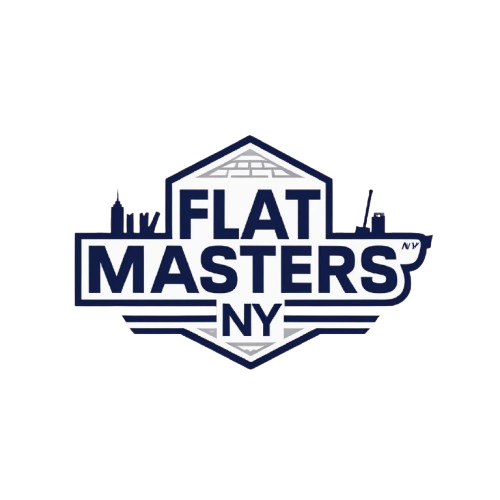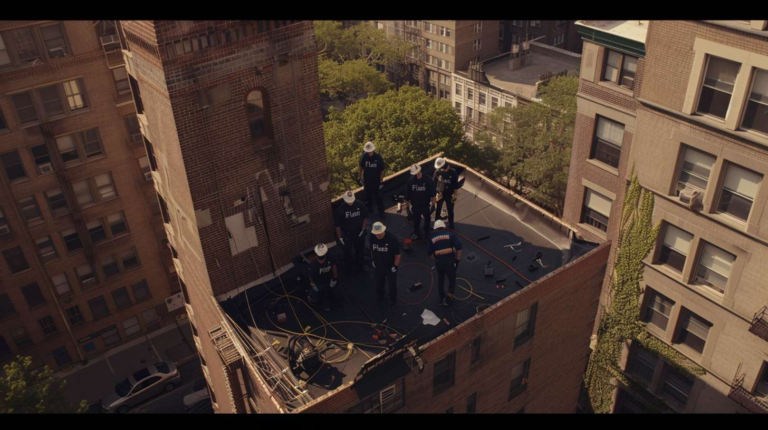Professional Flat Roof Coating Application Services Near You
Look, I've been applying flat roof coatings across Queens for over two decades now, and I can tell you this much - it's not something you want to mess around with. The wrong application technique or cheap materials, and you're looking at a complete re-roof in five years instead of getting the 15-20 years you should from a quality coating system.
Here at Flat Masters NY, we've perfected our flat roof coating application process through thousands of jobs from Astoria to Jamaica. And when I say perfected, I mean we've made every mistake in the book so you don't have to deal with the consequences.
How We Apply Coatings on Flat Roofs - The Real Process
The thing about flat roof coating application is that preparation is everything. I can't tell you how many times we've been called to fix a job where some other contractor just slapped coating over dirty, damaged substrate and called it a day. That's not how you apply roof coating on flat roofs properly.
First thing we do is a complete roof inspection. Every square inch. We're looking for loose seams, failed caulking, standing water areas, and membrane damage. On a typical 2,000 square foot flat roof in Flushing, we usually find 15-20 problem areas that need attention before any coating goes down.
The cleaning phase is where most contractors cut corners. We power wash the entire surface, scrape off loose material, and make sure we're down to sound substrate. Takes us usually a full day for an average Queens flat roof, but it's the difference between a coating that lasts 18 months and one that protects your building for decades.
Primer Application - The Foundation of Everything
Here's where the technical side gets critical. Different roof substrates require different primers. EPDM needs one approach, modified bitumen another, TPO something else entirely. We stock six different primer types at our Woodside shop because Queens buildings have everything under the sun up there.
Temperature and humidity matter more than most people realize when applying flat roof coatings. We won't start a job if it's going to rain within 24 hours, or if temps are dropping below 50 degrees overnight. Had a competitor finish a job in Bayside last summer right before a thunderstorm - the coating never cured properly and started peeling within weeks.
The primer goes on with either brush, roller, or spray depending on the surface texture and coating system we're using. For smooth EPDM, we typically spray. Rough modified surfaces get rolled. It's all about achieving the right mil thickness - usually 2-3 mils wet for most systems.
Main Coating Application Techniques
This is where experience really shows. How to apply flat roof coatings properly comes down to understanding your tools, your materials, and your environment. We use three main application methods depending on the situation:
- Spray application - Fastest for large flat areas, gives us excellent mil thickness control
- Roller application - Better for textured surfaces and detail work around penetrations
- Brush work - Essential for edges, transitions, and repair areas
The key is maintaining wet edge throughout the application. On a hot July day in Queens, you've got maybe 10 minutes before the coating starts to skin over. That's why we work in sections and always have enough crew to maintain continuous coverage.
Most coating systems require two coats minimum. First coat typically goes on at 10-12 mils wet, which cures down to about 6-8 mils dry. Second coat adds another 6-8 mils for total system thickness of 12-16 mils. Anything less and you're not getting the warranty coverage or longevity you're paying for.
Dealing with Queens Weather Conditions
The salt air from the East River and humidity off Flushing Bay create unique challenges for flat roof coating application here in Queens. We've learned to work around these conditions rather than fight them.
Morning applications work best during summer months. We're usually on the roof by 6 AM to get ahead of the heat. Afternoon temperatures on a flat roof in July can hit 160 degrees - not exactly ideal curing conditions for most coating systems.
Winter coating work is possible but requires heated storage for materials and careful attention to substrate temperatures. We use infrared guns to check surface temps before application. Anything below 45 degrees and we wait for better conditions or use specialized cold-weather formulations.
Critical Details Most Contractors Miss
Penetrations are where coating systems fail first. Every pipe, vent, drain, and rooftop unit needs proper detailing with fabric reinforcement and extra coating buildup. We typically apply 20-25 mils total system thickness around penetrations compared to 15 mils on field areas.
Drainage is absolutely critical. Before any coating goes down, we verify positive drainage to all drains and scuppers. A single ponding water area will destroy the best coating system within five years. Sometimes this means installing additional drains or tapered insulation - adds to the cost but saves thousands in premature failures.
The curing process is where patience pays off. Most acrylic coatings are touch-dry in 2-4 hours but don't reach full cure for 30 days. We protect fresh coatings from foot traffic and make sure building maintenance staff understand the restrictions.
Material Selection for Queens Buildings
We primarily use three coating types depending on the existing roof system and building requirements:
Acrylic coatings work great on most Queens flat roofs. Good UV resistance, relatively inexpensive, easy to maintain. We've had excellent results with Sherwin Williams and GAF systems on everything from small apartment buildings in Elmhurst to large commercial properties in Long Island City.
Silicone coatings are our go-to for roofs with ponding water issues. They cure underwater if necessary and provide excellent resistance to pooling water. More expensive upfront but worth it on buildings with drainage challenges.
Polyurethane coatings offer the best durability for high-traffic roofs or areas with severe weather exposure. We use them primarily on commercial buildings with regular rooftop maintenance activity.
Quality Control During Application
Every coating job gets documented with photos at each stage. We measure wet mil thickness with calibrated gauges throughout application and provide customers with detailed records showing coverage rates and system buildup.
Our crew chiefs have been with us for years - Carlos has been applying coatings since 2008, Maria joined us in 2012. They know how materials behave in different conditions and can spot potential problems before they become failures.
We warranty our coating applications for 10-20 years depending on the system selected. That's only possible because we control every aspect of the application process from surface prep through final inspection.
When Coating Application Goes Wrong
I've seen coating failures from improper surface preparation, wrong material selection, poor application technique, and inadequate system thickness. The worst was a 15,000 square foot warehouse in Maspeth where the previous contractor applied coating over wet substrate during a humid August week. The entire system debonded within six months.
Bubbling and blistering usually indicate trapped moisture or solvent during application. Premature chalking suggests the coating was applied too thin or during adverse weather conditions. Adhesion failures point to inadequate surface preparation or primer selection.
Most coating problems are preventable with proper application techniques and material selection. That's why we stick to proven systems and established procedures rather than experimenting with your roof.
Getting Started with Professional Coating Application
Every coating project starts with a detailed roof assessment. We measure drainage, check substrate condition, identify repair needs, and recommend the appropriate coating system for your specific building and budget requirements.
Our estimates include complete scope of work from initial cleaning through final inspection. No hidden costs or surprise charges for necessary prep work. We've been serving Queens property owners since 2001 and our reputation depends on delivering exactly what we promise.
If you're considering flat roof coating for your Queens building, give us a call at (917) 994-7618. We'll schedule a free inspection and provide you with a detailed proposal covering all aspects of proper coating application. After twenty-plus years in this business, we've learned that doing it right the first time costs less than fixing it later.


